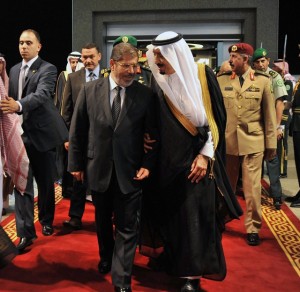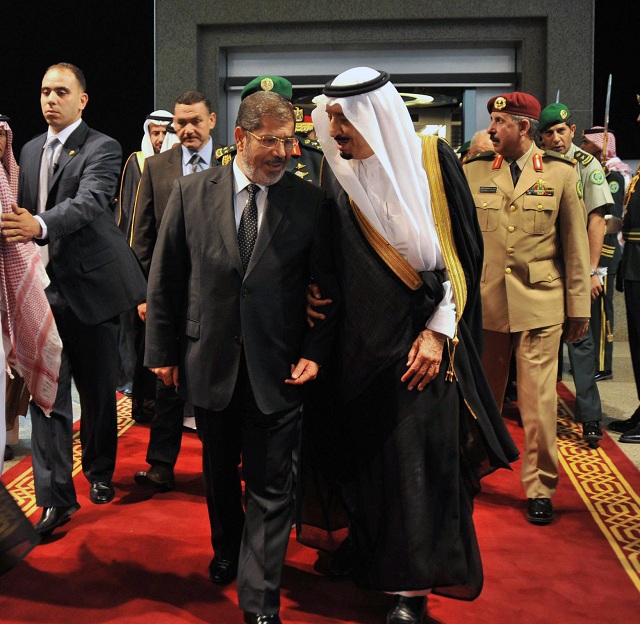
At the top of the agenda during President Mohammed Morsy’s trip to Saudi Arabia is a conversation about economics. Saudi Arabia has already lent $1 billion to Egypt, in addition to a $500 million contribution to bolster the post-revolutionary budget.
However, the leaders of Saudi Arabia have reasons to be wary of supporting Morsy. The Muslim Brotherhood’s rise in Egypt has been greeted with misgivings in Saudi Arabia. It represents a threat to the bilateral relationship between the two Sunni powers and could encourage grassroots Islamic organizations within the gulf nation.
Despite this, Egypt is interested in maintaining a positive relationship because it receives huge sums of cash from expatriates working in Saudi Arabia. The Financial Times reports that some 1.65 million Egyptians are sending remittances back home. The two countries are a perfect match because Egypt’s lack of jobs sends many workers looking abroad while a growing, but less populated, Saudi Arabia has been eager to employ low wage workers. It is important for Morsy to ensure that this flow of money is not interrupted because of political fears or bickering.
The two countries do a great deal of business with each other outside of the remittances. The Egyptian State Information Service points out that Saudi Arabia is the largest Arab investor in Egypt. Recently the total volume of trade has remained over $4 billion each year. Egypt exports fruits and vegetables, steel and iron, and electrical equipment. In return Saudi Arabia offers vast amounts of oil.
Saudi Arabia is also in need of Arab allies at a time of widespread instability. The kingdom neighbors Syria, Bahrain, Yemen, and Iraq, all of which face varying degrees of violence, and relations with Iran have long been bitter.
In many ways it makes sense that Morsy is choosing Saudi Arabia as his first international destination since becoming president. Egypt desperately needs economic assistance and finance is something Saudi Arabia has to offer. The Saudis want a stable and reliable trading partner and are indicating that they believe the Muslim Brotherhood can supply that.




